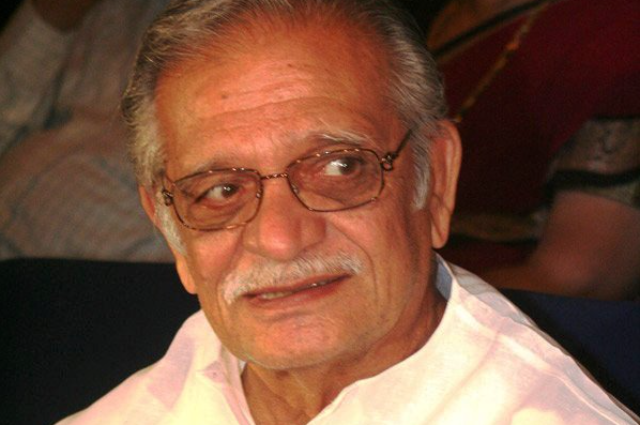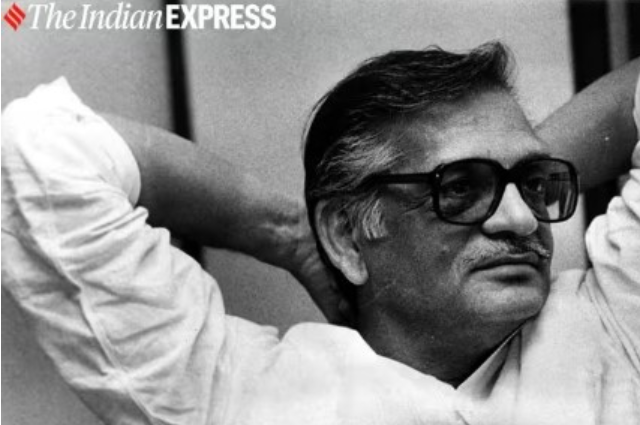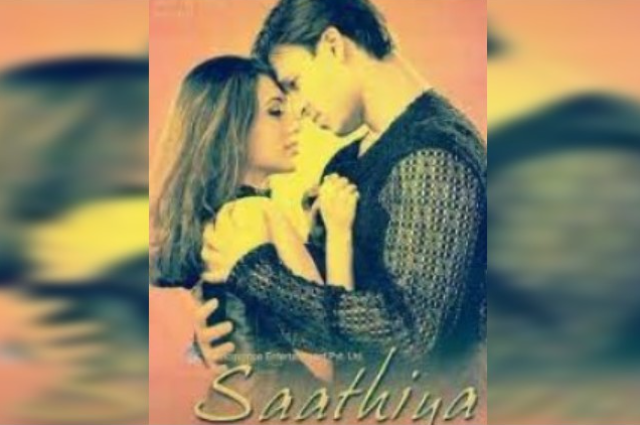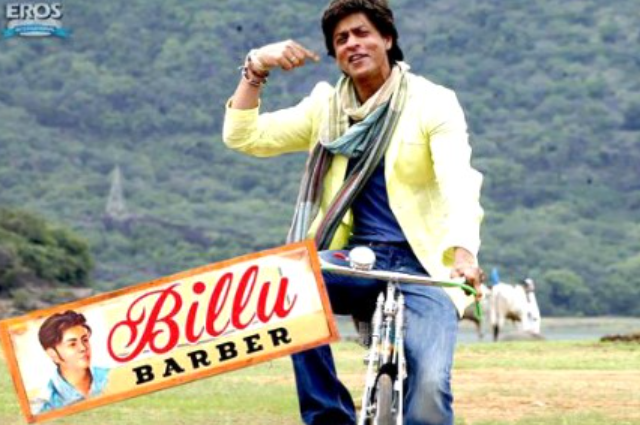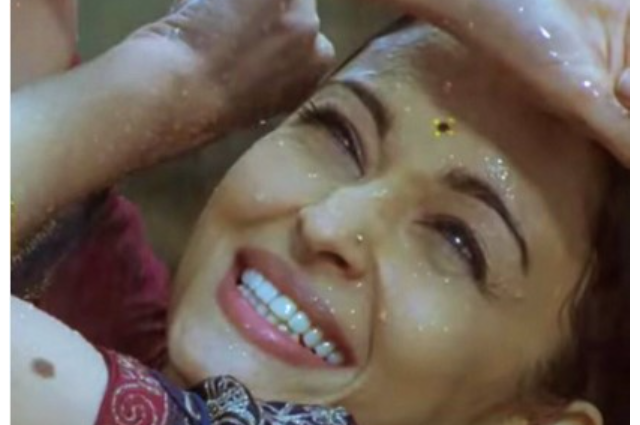Gulzar: Manipulator of senses, flutterer of souls, tugger of hearts. From evocative lyrics to crisp scripts, and moving movies to playful poems, his oeuvre spans far and wide. Amidst Bollywood’s many talents, few have embedded themselves into the cultural consciousness and inspired such reverential awe nationwide. His lyrics monumentalize the mundane, transcend socioeconomic divides, and embrace unconventional imagery. What I've also often pondered is the portrayal of women in his verses. The women are complexly poetic, staunch yet longing. They possess passions and perceptions resisting entrapment and societal conventions. In this piece, I delve into the feminist themes in the writing of one of our greatest contemporary writers.
Devotion over Domination
Gulzar's world values and celebrates women for their humanistic allure. The males neither depend on nor seek dominance; they accept women for who they are. Songs like "Satrangi Re" (Dil Se, 1998, Mani Ratnam) and "Saathiya" (Saathiya, 2002, Mani Ratnam) exude fable-like devotion. The women in these songs are depicted in layered vignettes.
Consider these striking lines from Satrangi Re: "Chhooti hai mujhe sargoshi se, aankhon mein ghuli khamoshi se (She touches me like a whisper, a dissolved silence of the eye)." Her seven colors have painted his heart, her silent eyes touching his soul. In another instance, "Tu hi tu, tu hi tu, jeene ki saari khushbu Tu hi tu, tu hi tu, aarzoo aarzoo(You are the fragrance of life, my sole desire). " Noteworthy is that her beauty is a force—not a passive subject of admiration, but a lively myriad entwined with life itself.
Similarly, in Saathiya, the woman's beauty beckons seasons in "saat rang hai baharo ke ek ada me lapete hue, sawan bhado saare tumse. (Seven colors of spring are encapsulated in your style) "and harbingers day and night in "teri bali hil gayi hai, kabhi Kabhi shab chamak uthi hai Kabhi shaam khil gayi hai (The clink of your earring has brought in dusks and birthed mornings)", embodying her lover's world.
"Chappa Chappa" (Maachis, Gulzar, 1996) is playful, fruity, and tinged with the ache of memory. Amid velvety rhythms and a haughty bonfire, men far from their village seek solace and beauty celebrating what they’ve left behind. On the verge of an uncertain future, their past lovers and wives represent an untainted innocence and an enduring hope. The women emerge brightly: "katori se khilati thi" (fed with her caring hand from the bowl) and "surma lagati thi "(her kohl-rimmed eyes and vanity).
Quirks and Qualms
Gulzar writes empathetically and humorously about the intricacies of women- from their blue-black hearts to their untamed spirits, from their maniacal tweaks to their endearing habits.
"Enna Sona" (Ok Jaanu, Shaad Ali, 2017) is a love song chalked in memory. The romance of Tara (Shraddha Kapoor) and Adi (Aditya Roy Kapoor) is rooted in their Mumbai home. As Tara and Adi part for work, the pining of distance begins blending into a black-and-white dreamscape. He keeps missing her in tidbits; traces of her infuse his routine life. He says in his heart,''kol hove te sek lagta ae, door jave te dil jalda ae keri aag nal rab ne banaya?(Your presence warms me, your absence scorches; with what fire did God craft you?" Tara isn’t diminished but enhanced by the male gaze, woven through their camaraderie.
In Billu (2009, Priyadarshan), husband and wife, Billu (Irrfan) and Bindiya (Lara Dutta), never explicitly confess love or share grand romance. Yet their love is stitched into the movie, threading through glances and gifts. "Khudaya Khair" celebrates their subtle intimacy and the placidity that comes with sharing life. Nothing is hidden— their personalities have intertwined. From her dusky skin (''zara si saawli hai woh '') to his dazed demeanor (''zara sa bawara hai woh ''), from his habit of putting off talks (''kuch karke wo baat ko taale'') to her nail biting, a moving portrait of her and their marriage is carved.
In Satya (1998, Ram Gopal Verma), Bhiku Mhatre (Manoj Bajpayee) is a notorious gangster feared in the underworld, but at home equaled and challenged by his fiery, opinionated, and total badass wife Pyaari (Shefali Shah). They bicker lots but balance each other out beautifully. The grisly wedding song ‘Sapne Mein Milti Hai’ celebrates her and the crazy tumble that is their relationship. From her wayward walk, (''Chakra ke chalti Hai '') to her ‘pyaari’ smile (''hasi to kamal hai’’), it’s the height of gangster glamor.
Longings, dreams, and identities
Gulzar often uses metaphors and symbols mirroring their narrative worlds and complex identity politics. The most prominent one is likening women to the natural world. Like nature, women are multifaceted with the strength to mold or break. In the following lyrical journeys, we see women brimming with love and a meandering spark in their steps. They vocalize their desires and the yearning plague of their hearts as they navigate the labyrinth of life.
In ''Barso Re'' (Guru, 2007, Mani Ratnam) Sujata (Aishwariya Rai) emerges amidst vibrant, emerald landscapes bordered by streams, forts, and islands. In her lush, gossamer world, she dances her introduction: a frivolous, longing girl who wants her fill and isn’t afraid to go beyond for her happiness. As she’s shown running away from home and rushing to meet her lover at the train station against her family in the dark of the night, she sings—"behki chali mai to behke chali "—her connection with nature so profound that she merges with it: flowing with the streams, evaporating like the dew.
Both ''Katra Katra'' (Ijaazat, Gulzar, 1987) and ''Darling'' (Saat Khoon Maaf, Vishal Bharadwaj, 2011) delve into hidden realms of women. In Katra Katra, husband and wife Mahinder (Naseeruddin Shah) and Sudha (Rekha) are on holiday. It is a song of the ephemerality of acceptance. They have been caught in a web of interconnected emotions and perplexing decisions, but that's been put away for a while. She has learned to treasure the transient and wants to let times and touches glide by - "sapno me behne do''. In fleeting moments, is the elixir of her universe.
Darling is reflective of Suzanna (Priyanka Chopra)'s ceaseless pursuit of an ideal love and uninhibited life. In lines like ''ankhon se aankhe char karne do'' and ''Public mein sansani ek baar karne do'' is mirrored the universal urge of women to let their ideals flourish and desires dance. A throbbing wish to realize an illusion that is perpetually distant yet tantalizingly nearby.

